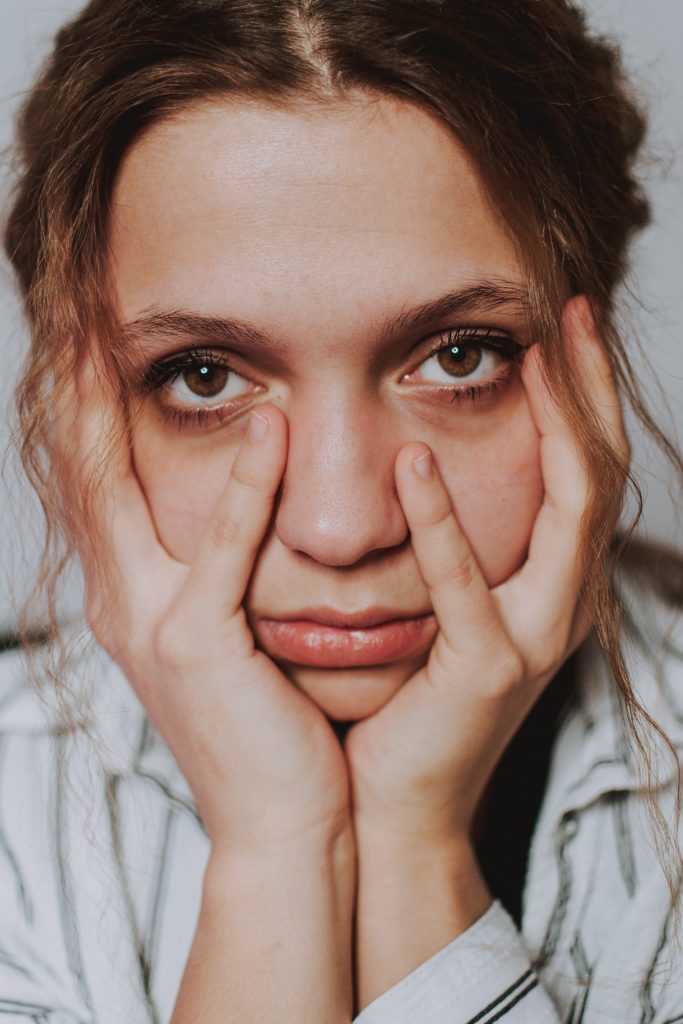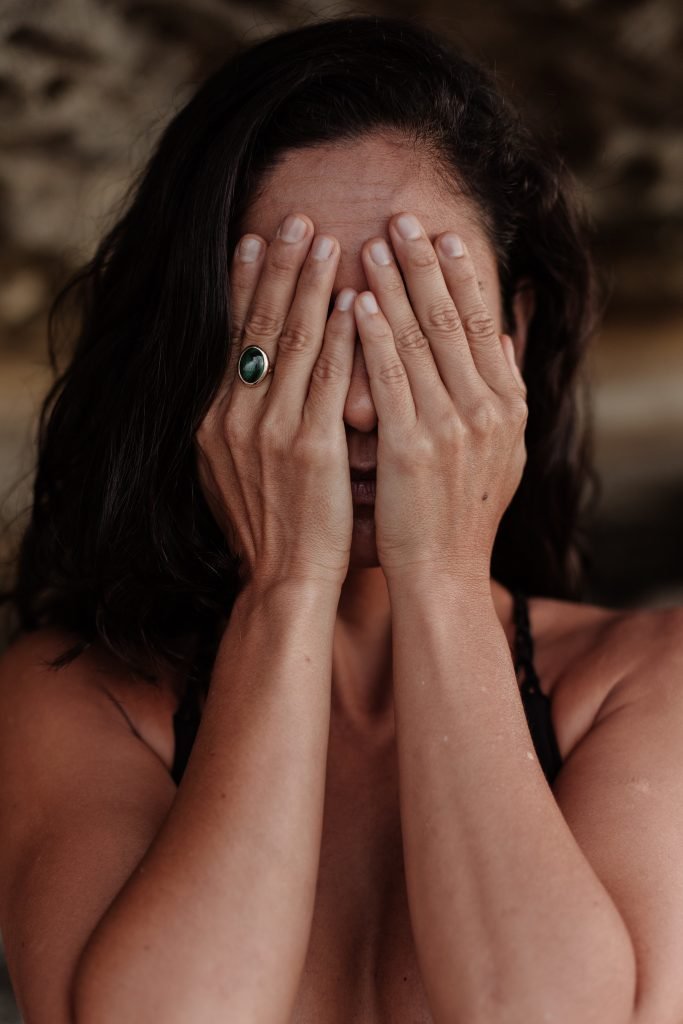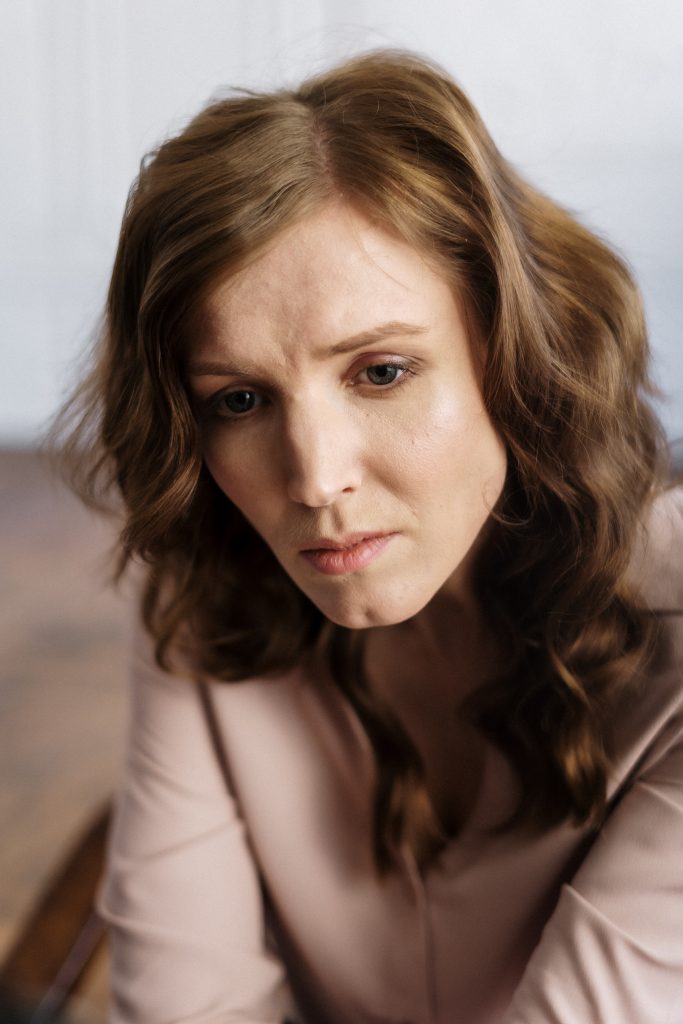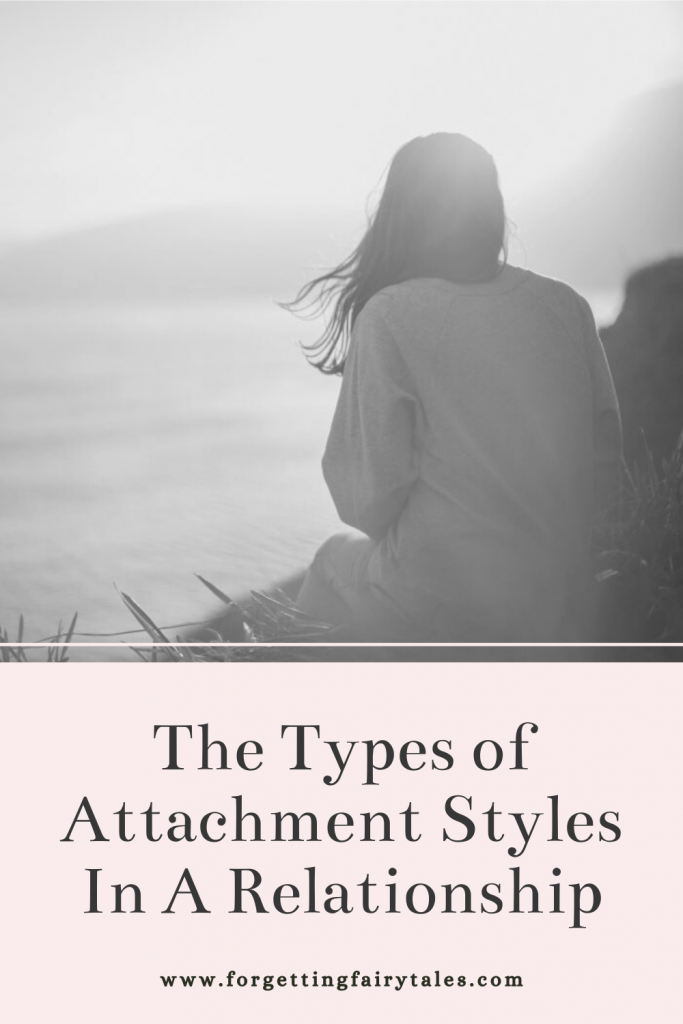Did you know there are different types of attachment styles in a relationship? This comes from the Attachment Theory, an area of psychology that describes the nature of emotional attachment between humans.
See it all starts from when we are kids, it’s then developed over time based on our experiences, until we adopt it in our romantic relationships.
Fundamentally however, our attachment style plays a huge role in how we behave – both when we’re committed and when we’re dating.
It is therefore important to recognise our attachment style in a relationship and just how healthy it is. Then, if we need to, we can work on it…
Where The Attachment Theory Came From
To give you a tiny little backstory, the attachment theory was first created by John Bowlby. He looked at the importance of a child’s relationship with their mother and the link between how that child then goes on to approach relationships in later life.
You can read more about that here if you like. It’s based on a number of studies. Some of which were not approved by all. But, it does give you the insight into where the findings came from.
The theory was then further developed by a lady called Mary Ainsworth. Her conclusions are what I’m going to break down in this post, with the types of attachment styles in relationships.

The Types of Attachment Styles In a Relationship
So, based on Mary’s research, it was concluded that there are three main types of attachment styles in relationships: secure, anxious or avoidant. These are the most common.
Sixteen years later however, researchers added a fourth attachment style in. This is called disorganised (although it doesn’t mean what you may initially think!)
We’ll look at all of them very briefly. Your task? To figure out which attachment style sounds the most like you…
#1 Secure Attachment Style
Let’s start off with the place we want to be – the healthy, secure attachment style. If you have this, you’re comfortable being alone, are strong and independent, but you’re also happy in relationships and are able to let people in.
There’s a healthy balance – with you having both your own life, and your partner having their own too, without you feeling threatened or rejected.
You’re trustworthy and don’t really have problems trusting other people either. You don’t avoid conflict but you also don’t create it. Instead, you look at how you can solve problems, you’re prepared to apologise and are able to forgive.
Aside from this, you’re naturally quite warm and loving. You’re able to express love and emotions, giving the relationship its healthy foundations. You don’t play games, you don’t excessively worry and your self-esteem is pretty good when it comes to your relationship.
Things of course won’t necessarily always go smooth running. You will still mostly likely experience your fair share of heartbreak, just like everyone else. But you deal with it properly and don’t carry the pain from the past around with you.
You know how to move forward and have a certain level of maturity when it comes to love and relationships. It’s a good place to be.

What To Do If You Have The Secure Attachment Style:
More than half of us actually have the secure attachment style. It holds the strong majority over the other attachment styles in a relationship, because it favours survival. So it’s where we should naturally be at.
If this sounds like you… phew! There’s no work you need to specifically do here, but carry on reading, just to make sure. It will also help you when you to recognise the attachment style that other people are, which is important when dating or moving forward into a relationship with someone.
So let’s move onto the next types of attachment styles in a relationship…
#2 Anxious Attachment Style
If your attachment style in a relationship is anxious, it’s kind of the opposite to secure. And this isn’t about the person you’re with. You could be with the most trustworthy person, who is absolutely head over heels for you. But if you don’t have that constant reassurance and affection, you’ll start to panic and overthink.
You struggle to trust people, but as mentioned before, this is not always fully justified and your behaviour can therefore be irrational or over-sensitive. As a result of this, you often react to things that don’t always need a reaction and read into situations too much.
You worry a lot about the relationship, and are nervous of it falling apart. You’re incredibly insecure (even when you don’t need to be!) and are constantly worried of rejection or abandonment.
There’s reasons for this, that often date back to childhood – but it’s not always black and white. You may not be fully aware of why you are the way that you are. Some things can happen before our recollection.
Regardless of this, it makes you needy, which can often scare dates away or become too much for partners. You seem to be searching for someone to ‘complete’ or ‘fix’ you. But it’s a bit of a fantasy.
It’s Tough Having an Anxious Attachment Style
Your need for closeness and intimacy never even seems fully satisfied and you’re constantly left wondering if your partner really wants to be with you.
You also struggle to be alone (which is why you certainly hate being single!) and therefore often jump into relationships too quickly – or worse – end up in an unhealthy / abusive one and still stay.
You don’t know your worth or appreciate what you deserve. Nor can you actually give the level of love you want to in return.
You’re highly emotional, demanding and often argumentative (the phrase “stirring the pot” comes to mind!) You can also come across as controlling or possessive. But in most cases, you’re likely to be misunderstood.
You don’t want to act the way that you do, and actually you would love for your mind to be able to calm down a little bit so that you can actually sit back and enjoy what you have! But this won’t happen without work…

What To Do If You Have The Anxious Attachment Style:
The first step is recognising that you do have a problem here. I know all of this doesn’t sound great, and it’s not – for yourself or the person you’re with. But you have to recognise and take responsibility for it.
See, it’s easy to blame other people or past experiences. This may well have made things more difficult for you or been the root of your problems. But ultimately the way you behave is down to you.
Once you’re aware, you can work on it. You may be wired this way now, but you can still take control and train your brain to react to things differently. You can also find ways to make things easier in the meantime.
I’m actually going to do a series of posts to help you move away from these damaging habits and poor mindsets, so if you’d like to be notified once these are ready, have a scroll down to the bottom of this page and subscribe to my newsletter. We’ll work through it together, okay?
#3 Avoidant Attachment Style
On the contrary, people with an avoidant attachment style tend to emotionally distance themselves from their partner.
It’s not that they’re not interested in them or don’t love them, it’s more that they don’t know how to love on a deeper level. As a result, they can be pretty ‘hot and cold’ with their affection, which can be confusing for dates or lovers.
The problem is, they feel like they have to have control over the situation. In fact, they’re scared of the emotional connection deepening too far, because it makes them feel vulnerable in a way. This isn’t something they’re used to, nor are they comfortable with it.
They’re workaholics (often), they throw themselves into their projects and interests, but as a result, they often neglect the people closest to them.
See, they live quite inward lives, sometimes denying the importance of loved ones or being able to detach fairly easily from them. It’s like they just shut down emotionally when things get too much.
Even in heated or emotional situations, they are able to turn off their feelings or not react.They seem indifferent, and unaffected. Some might say even heartless. But they’re not, not really. The calmness is often a front and their internal experience can be quite the opposite.
The Avoidant Attachment Style Is Often Misunderstood
They’re just used to looking after themselves, sorting through their own issues. They don’t want to depend on someone else, nor would they naturally see their partner as a source of comfort. Usually, because they’re just not used to this. This makes it difficult for anyone to truly be let in however. It also distances them from others.
Those with an avoidant attachment style can come across as self-centred or overly focused on themselves. And I guess in some ways they are. But there’s deeper issues behind it.
Often avoidants have a lot of self-doubt or insecurities. They are encased by an unconscious fear that they will be abandoned and rejected and therefore they do not allow themselves to get too close.
Even if they yearn for a loving connection, they may find themselves running from scenarios where they are asked to commit or push people away when they do start getting closer. Unfortunately, this only leads to loneliness, a sense of disconnection, and pessimism.

What To Do If You Have The Avoidant Attachment Style:
Similarly with the Anxious Attachment Style, if you want to move forward from it, you have to first recognise there’s a problem. It’s not normal to behave this way and it’s not actually justified.
You have to want to change and see that you are actually missing out on so much by being this way. You also need to address these negative beliefs you have around letting people in, because I promise you, it’s not as scary as it might first seem!
There’s nothing here that can’t be worked on though. You’re not a lost cause!
Again, I’ll be sharing another post specifically on how to move past your avoidant attachment style. If you’d like to be notified once this once it’s ready, have a scroll down to the bottom of this page and subscribe to my newsletter.
#4 Disorganised Attachment Style
The last and latest type of attachment style in a relationship is that of the disorganised. When we refer to this however, we’re not talking about someone who is always late, or losing things! Nope. The disorganised attachment style is also referred to as ‘Unresolved’ and I think that certainly summarises it better.
It’s actually a pretty heartbreaking attachment style and is usually formed after abuse or trauma in childhood. Not everyone who’s been through this will automatically adopt this attachment style. But, if it does have a hold on you – there’s a constant conflict of emotions.
Your past haunts you and your heart is therefore fragile. You battle with your emotions and have a lot of unresolved thoughts / issues. You’ve been through past traumas or losses and you haven’t truly gained closure on them, which is why they continue to affect you today.
As a consequence, you can’t handle emotional closeness in relationships. It terrifies you in fact. Yet the saddest part is, it’s also what you crave the most. You want to love and to be loved, to find that genuine connection.
But the stress and fear response that you get when you allow yourself to become close to someone often causes you to act erratically, driving potential connections away and stopping you from finding true happiness in this area of your life.

What To Do If You Have The Disorganised Attachment Style:
If you have this attachment style, there’s only one thing for it: you have to get help. Speak to a therapist, work through your past properly with someone. And I know this is insanely scary.
It means putting your trust in a professional which is still a challenge in itself. But if you can’t begin to open up to a stranger, how will you ever be able to truly connect with someone that you actually want to have a future with?
It’s going to help and you really have nothing to lose here. So, be brave. You can do it. Baby steps, but the most important thing is to take that first one… starting now. It’s what will free you from this pain and help you to heal.
What Attachment Style Do You Have in a Relationship?
So there we have it – the different types of attachment styles in a relationship. Your attachment style has a huge impact on the way in which you act.
We can’t change the hand we’ve been dealt with when it comes to life. But we can use our past to piece together why we behave the way we do today… and then work on it, if we find that we need to.
This is important not only for yourself and your (potential) partner, but also for your future family. After all, just like the way in which we were raised has an influence on the mindsets we adopt as we grow up – attachment patterns are often passed down from one generation to the next.
Why? Because children learn how to connect from their parents, so if you have issues in this area, it’s likely your children will too… which I’m sure only adds to your motivation to work on yourself.
Take the first steps today, to a happier future. Don’t try to avoid it because nothing gets better when you bury it away. Tackle any issues that you have with your attachment style HEAD ON, and I promise you, it will make life so much better.
Be brave!
Love,
Ell_xx

Recommended Reads:


Happy to say that I have the secure attachment style relationship. I haven’t always, and it can be a tough road getting there. Working on yourself is definitely key!
This is lovely, im definitely the secure attachment style.
This is great, especially for women who tend to be more attached. Just saying, not sterotyping.
Wow… I was not aware of this theory. I learnt something new today!!
I like how you mention even what to do with each attachment style which helps more for people who just got in a relationship.
Aw. I love this! I’am the person that hardly to attached with someone else. Honestly dating is awkward for me especially if I don’t personally know the someone but in my middle age of 20’s I’am working my social attachment for people. btw I’m introvert person.
Definitely I am a secure attachment type. And I am happier than ever.
love this. i think i have the anxious attachment style. I’m working on being secure though
Wow very informative! I used to be very much the disorganized attachment style, but therapy was a huge help! It’s amazing how much we can grow and learn to be healthy even if our previous experiences were extremely traumatic. <3 It's never too late to build a happy life and healthy relationships.
Wow I didn’t know about all of these attachment styles. I think these will help me understand relationships better.
I didn’t realize there was so many attachment styles when it comes to a relationship. I think I’ve had anxious attachment styles over the years but hope to be more secure in my next relationship.
This is really interesting. I think I have a pretty secure attachment style for the most part but I’d be lying if I said I didn’t have some anxious tendencies at the beginning of new relationships.
Wow, it improved my knowledge of relationship a bit. Love to know about various types of attachments!
I would love to say I am Secure Attachment Style, but I am probably more like Anxious Attachment Style. I tend to overthink things all day, every day. Maybe I’m a mix. It’s like once every few months I overthink our relationship, but it’s just me trying to make sure he is not going to go away. Probably not healthy, but I am working on it.